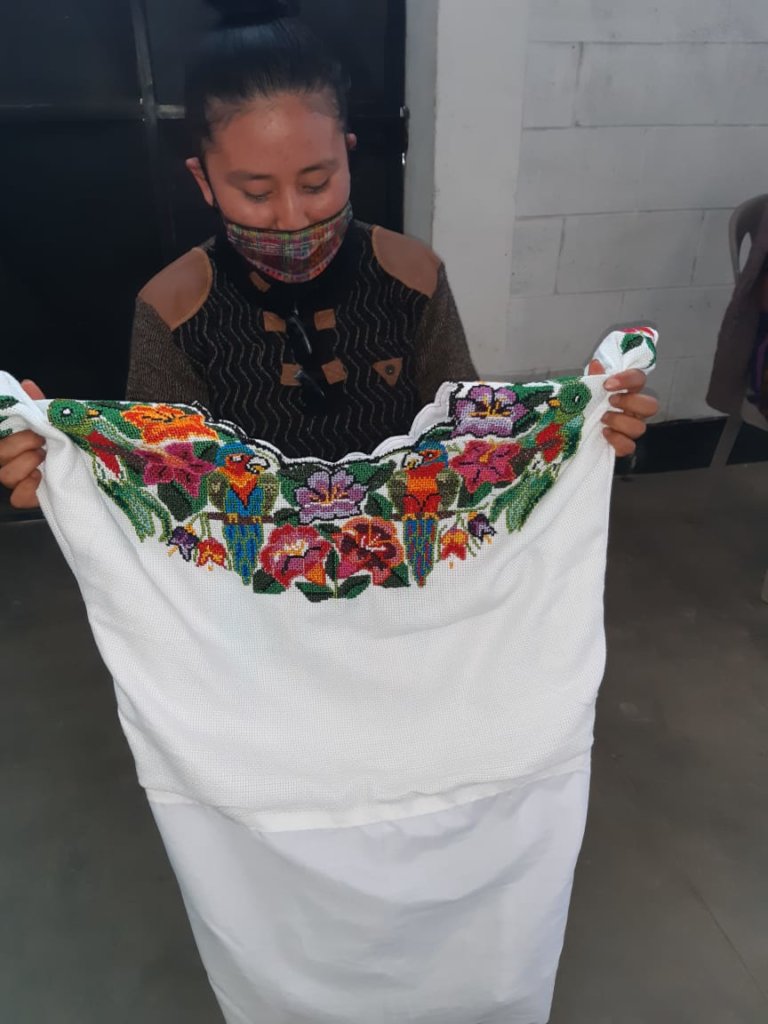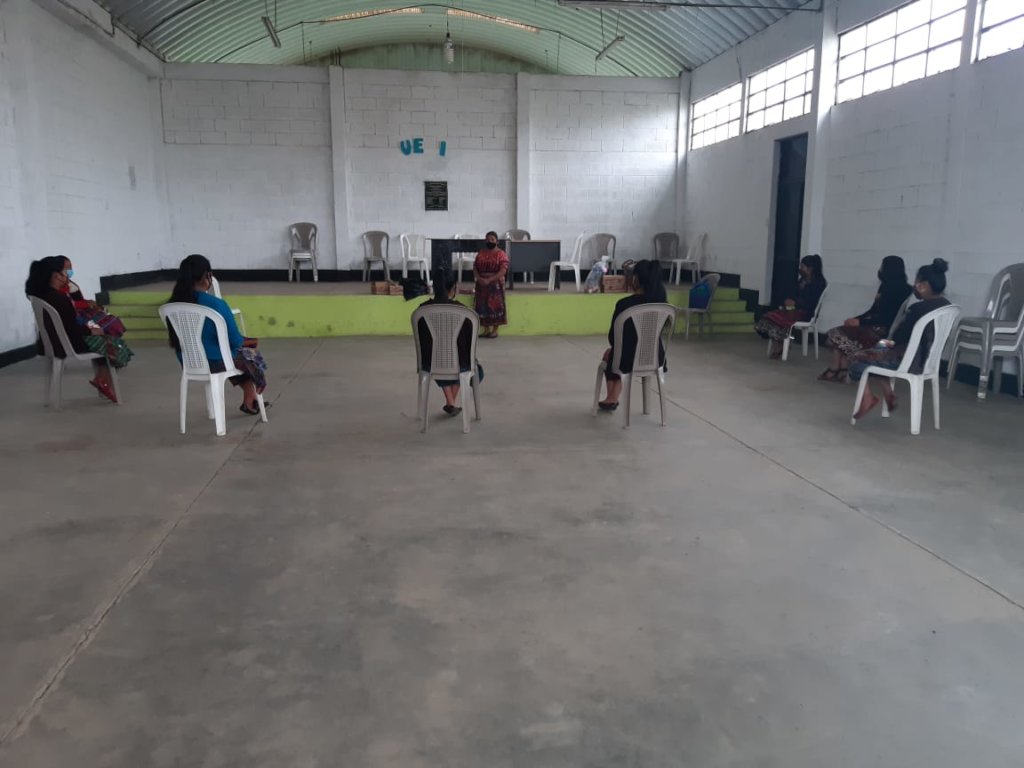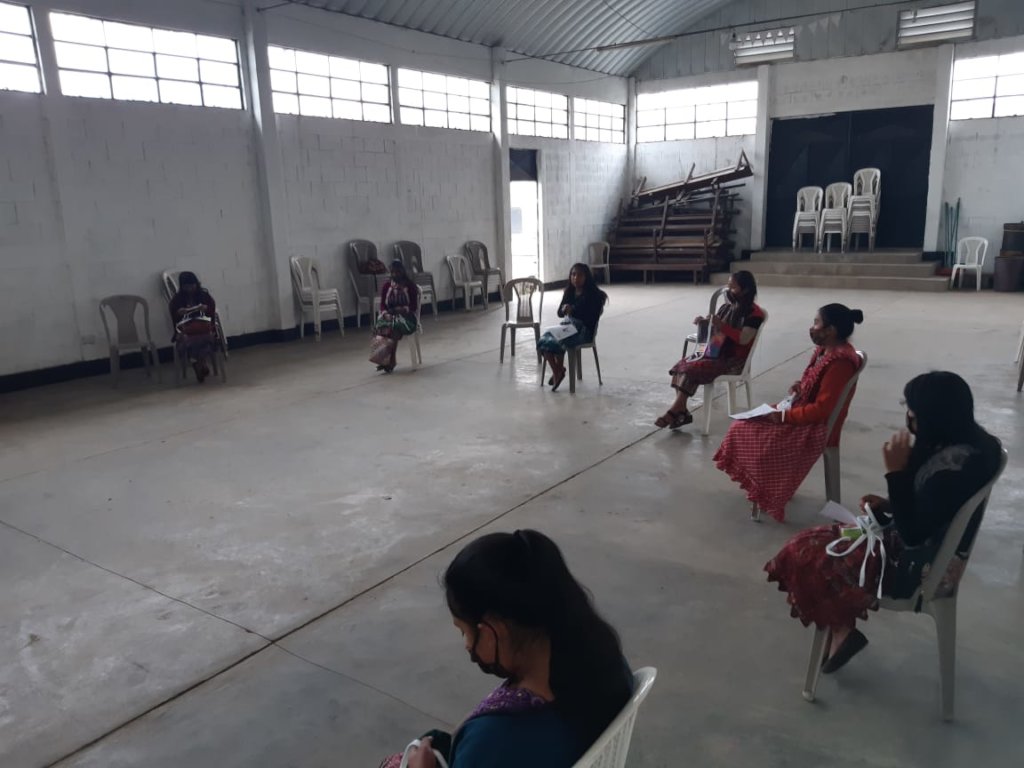By Emily Nagler | Development and Communications Fellow
In mid-March, it became clear that the COVID-19 pandemic had arrived in Guatemala. As the situation developed rapidly, the Women’s Justice Initiative (WJI) decided to halt all in-person activities to protect the health and safety of our staff and program participants. Our plans for 2020, including our workshops with adolescent girls and a new pilot program with boys, were put on hold. After COVID cases were detected in Patzun, where WJI’s office is located, the entire municipality was cordoned off, restricting travel and further limiting WJI’s access to the 38 communities where we work.
At that point, we had more questions than answers. How could we combat violence against women and girls with only remote services? What were the current challenges in the communities we serve, and how could we best respond?
To find the answers, WJI turned to our network of Community Advocates, women leaders who undergo an intensive leadership training program with WJI and then serve as a leader and resource for women and girls in their communities. Throughout April, WJI staff connected with 73 Community Advocates over the phone to conduct needs assessments of WJI’s partner communities. It became clear that both food insecurity and violence against women and girls had become urgent concerns. These communities continue to face job losses, lockdowns, and food insecurity. While girls remain home from school and families worry about where they will find their next meal, the risk of intimate partner violence and child marriage has skyrocketed. In fact, since the onset of COVID-19 in Guatemala, the number of people facing hunger has doubled, and reports of sexual violence in Guatemala have nearly tripled compared to the previous year. Since March, 80% of women who have sought legal services from WJI have experienced violence.
Based on the needs that our Advocates identified in their communities, WJI developed our COVID response strategy:
WJI’s recent activities respond to the urgent needs that have arisen in our partner communities and build upon the leadership of our network of Community Advocates. Our activities have been successful thus far because our approach reflects the input of members of our partner communities, who were integral in determining our course of action. These activities also help maintain partner communities’ trust in WJI. Just this month, we were welcomed back into the community of Xepatan, where we were able to resume workshops with a small group of adolescent girls, with social distancing and COVID precautions in place. It is vital that we continue to support these communities in order to sustain the long-term success of our programs, as well as to respond to immediate crises.
As WJI looks ahead to the year to come, we know we will continue to partner closely with our network of Community Advocates to adapt and respond to new challenges. With your generous support, we will build the leadership capacity of Community Advocates to help implement our community-based programs, such as our adolescent girls workshops, in new communities. Several of our Advocates are adolescent girls and young women in their late teens and early twenties, and are skilled at connecting with girls and young women in their communities. We plan to continue to train additional younger women in the year to come, as young women often bring distinct skills and a different perspective from our older Advocates, and having a diverse group helps our programs to be more effective. We will also continue to collaborate with other local organizations to more holistically respond to the needs of our partner communities, building on the relationships established and lessons learned through our COVID response strategy.
Though this has not been the year we thought we would have, we believe that these new challenges will ultimately strengthen our long-term impact and sustainability as an organization and improve our ability to respond to and prevent violence against women and girls. As Candy, a 21-year-old Community Advocate from Paxixil, Guatemala, reflected, “As my mother would say, ‘no one can take away your impulse to help other women, no matter the hour or the day.’” Not even COVID-19 can tear down our network of strong, empowered indigenous women’s rights defenders.
This report was originally published as a blog post with WomenStrong International's Learning Lab. We greatly appreciate the support of WomenStrong and all the donors who have helped us implement our COVID response.
Project reports on GlobalGiving are posted directly to globalgiving.org by Project Leaders as they are completed, generally every 3-4 months. To protect the integrity of these documents, GlobalGiving does not alter them; therefore you may find some language or formatting issues.
If you donate to this project or have donated to this project, you can receive an email when this project posts a report. You can also subscribe for reports without donating.
Support this important cause by creating a personalized fundraising page.
Start a Fundraiser

